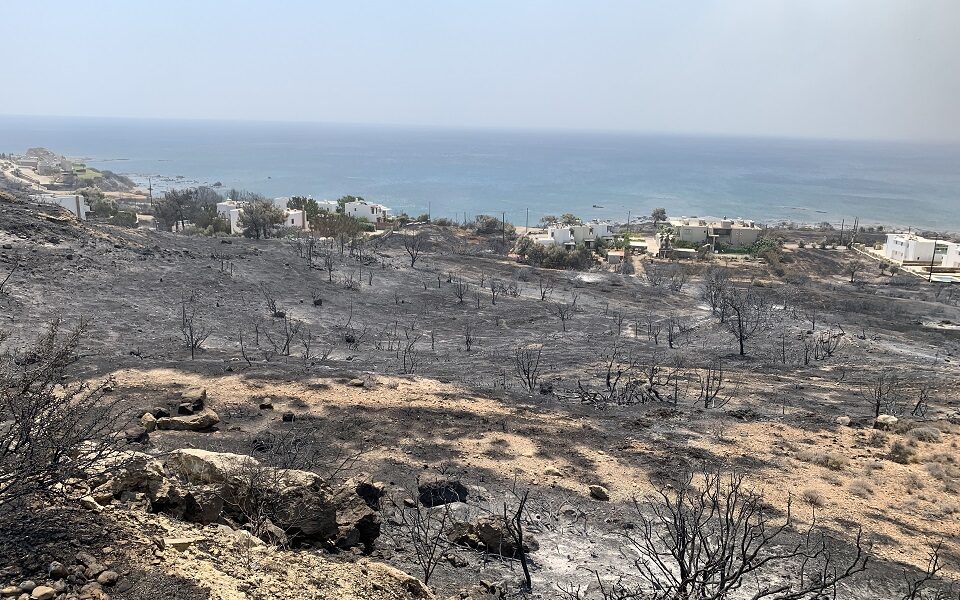Arson and punishment

The people who cause devastating and sometimes even deadly wildfires every year are effectively not treated like criminals. This is not only because the punishments foreseen in the law are utterly disproportionate to the consequences of their actions. It is also because the state, society and, of course, the justice system have, for decades, treated arsonists like common criminals, on a par with, say, someone who commits forgery or embezzlement.
The overwhelming majority of arsonists, the statistics tell us, cause destructive and deadly wildfires out of criminal negligence and much less frequently by criminal intent, yet the treatment they receive from society does not entail the moral indignation commensurate with the destruction they wreak. They remain unnamed and, basically, unpunished.
The efforts made since the Mati tragedy to make the law stricter fall short in meeting the public’s need to feel that justice has been served
Who, for example, knows the name of the 70-year-old woman who was cooking in her garden in 2007 and accidentally sparked a massive blaze in the Peloponnesian region of Ilia that claimed 65 lives and razed hundreds of hectares of land? Who knows the elderly gentleman who, five years ago, lit a fire to burn yard waste in Penteli while winds of 9 Beaufort were blowing, inadvertently causing the tragedy in Mati that left 104 people dead and scores suffering from burns? For the record, the man in question is a defendant in the trial over the East Attica blaze and has not once set foot in court, has never apologized to the victims and has not spent a single day in prison.
Arsonists, who are usually tried for negligence since intent is extremely hard to prove, tend to get away with small sentences, rarely serve any prison time and face no other penalty for the terrible destruction they cause to humans, animals, the environment etc.
The efforts made since the Mati tragedy to make the law stricter fall short in meeting the public’s need to feel that justice has been served. Apart from the sentences – which the state should rule are served, in full, regardless of how many months or years they’re for – more measures are needed. For example, arsonists should pay damages to the state, which should be able to seize their assets. Their identities should also be made public. People should know who they are, especially the people who lose loved ones, their livelihoods and their homes, not to mention the communities that are deprived of valuable natural and economic capital.
As times change and the climate crisis takes its toll, criminally negligent arsonists cannot be treated as if they have simply fallen foul of the law in some minor way. They are criminals and must be treated as such.





